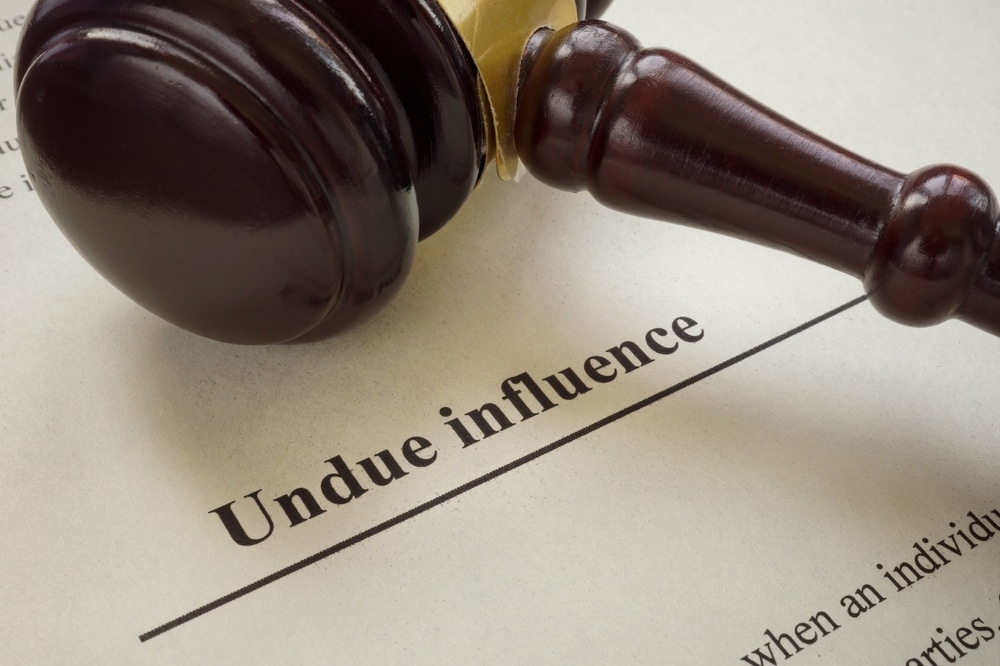WE CAN HELP YOU CALL US TODAY
WE CAN HELP YOU CALL US TODAY

As estate attorneys serving Lincolnshire and the greater Chicago area, we know that contesting a will is never a decision made lightly. One of the most common grounds for a will contest in Illinois is undue influence, a legal claim that someone improperly pressured or manipulated the person making the will, also called the testator, into changing their estate plan. These cases are often emotionally charged, involving family disputes, caregiver relationships, or conflicts over significant assets.
Illinois law recognizes the need to protect vulnerable individuals from manipulation, particularly when their physical health, mental clarity, or dependency makes them susceptible. The Illinois Probate Act (755 ILCS 5/8-1 et seq.) provides the framework for challenging the validity of a will on various grounds, including undue influence. Proving undue influence can be difficult, but with the right evidence, it is possible to have an unfair will set aside so the decedent’s true wishes are honored.
In Illinois, undue influence occurs when a person’s free will in creating their estate plan is overpowered by another person’s pressure or manipulation. This influence must directly affect the terms of the will. It is not enough to show that someone had the opportunity to influence the testator or that the beneficiary was persuasive. The influence must be so substantial that the will no longer reflects the testator’s independent intent.
Courts look for signs of a confidential or fiduciary relationship between the testator and the alleged influencer. For example, if a caregiver, financial advisor, or close relative held significant power over the testator’s daily life or finances and then benefited greatly from a sudden change in the will, this may raise suspicion. Illinois courts also consider whether the influencer participated in preparing or executing the will.
We often see patterns in cases involving undue influence. These can include:
While none of these factors alone proves undue influence, several occurring together may create a strong case.
To prove undue influence in Illinois, the party challenging the will must present convincing evidence that:
Illinois courts apply what is called a presumption of undue influence when there is a fiduciary relationship, active participation in the will’s preparation, and a resulting benefit to the fiduciary. When this presumption applies, the burden shifts to the person defending the will to show that the testator acted freely and without coercion.
Undue influence claims often involve both legal and medical evidence, including witness testimony, correspondence, medical records, and financial documents. These cases can also become emotionally complex, as they often involve accusations among family members.
We understand that challenging a will is not only about legal rights, it’s about preserving a loved one’s true intentions. As attorneys, our role is to gather and present the right evidence, work with expert witnesses when needed, and protect your interests throughout the probate process.
Undue influence involves coercion or manipulation that overcomes the testator’s free will, while fraud occurs when the testator is misled by false statements or deceit into making certain decisions in their will. Both can invalidate a will, but they require different types of proof.
In Illinois, a will contest must be filed within six months after the will is admitted to probate. Missing this deadline can result in losing the right to challenge the will, regardless of the evidence.
Direct evidence is rare in these cases. Most undue influence claims rely on circumstantial evidence, showing a pattern of behavior, the testator’s vulnerability, and the influencer’s active involvement in creating the will.
Yes. Caregivers often have significant access to and control over the testator’s daily life, which can create an opportunity for undue influence. However, not all caregiver involvement is improper, there must be evidence of coercion or manipulation that altered the will’s terms.
If the court finds undue influence and invalidates the will, the estate will typically be distributed according to the most recent valid will. If no prior will exists, the estate will be distributed under Illinois intestacy laws.
Yes. In some cases, more than one person may have worked together to influence the testator. Each person’s actions and role will be examined by the court to determine whether undue influence occurred.
No. Mental incapacity relates to whether the testator had the legal ability to make a will at the time. A person can have the mental capacity to make a will, yet still be subjected to undue influence if someone overpowers their free will.
If you believe a loved one’s will does not reflect their true wishes due to undue influence, we are here to help. At Orlowsky & Wilson, we represent clients throughout Chicago and the surrounding areas in complex will contest cases. We understand the emotional and legal challenges these disputes bring and will work diligently to protect your rights.
Contact our Lincolnshire estate planning lawyers at Orlowsky & Wilson (847) 325-5559 to schedule a consultation. We serve clients from our Lincolnshire office and throughout the city of Chicago, Illinois.